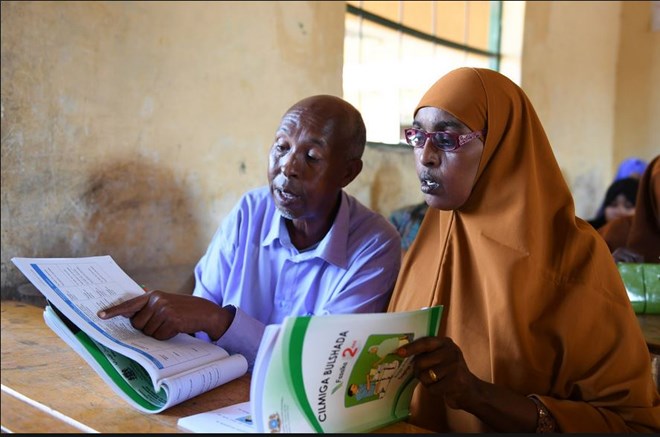
Wednesday July 25, 2018

Somalia’s civil war wrenched the country in many ways. Families were torn apart, the rule of law faded away, government institutions collapsed, and education came to a standstill, to name but a few of the setbacks the country faced because of the violence.
In the ensuing decades after the war’s end, the area of education slowly regained some structure as the authorities – aware of its importance for the country’s long-term development – tried to get it back on track.
However, this led to a laissez faire situation with a mish-mash of systems and structures for primary and secondary schools, which adopted any system their owners deemed fit.
Even school terms and school books varied across different parts of the country.
All that will change next month: “For the last 30 years, the country has been craving for a Somali-owned and Somali-prepared education system – we finally have it,” says Mohamed Abdulkadir, an advisor to the Federal Government’s Ministry of Education, and the official charged with overseeing the implementation of a new education system, including a new national curriculum, across Somalia.
In early August, after students finish the usual two-month summer break, the horn of Africa country’s education system will undergo a major transformation with the adoption a new, unified and streamlined system for primary and secondary schools, covering everything from subjects to terms.
Under the new system, commonly referred to the ‘4-4-4 system,’ students will spend four years in lower-primary education, four years in upper-primary and another four years in secondary school before being able to enroll in institutions of higher learning.
In addition, students with talent in different fields, including sports, music and art, will be identified and nurtured to realise their full potential in these areas: “Our aim is to ensure our children access to education as well as opportunities where they can exploit their talents for their benefit and that of the country,” says Mr. Abdulkadir. The school calendar year will be divided into two academic terms, with the first term running between January and May, and the second from August to December.
In preparation for the new system, the federal authorities had put in place a pilot programme in various schools in the capital, Mogadishu, and teachers around the country have been undergoing training since the beginning of June.
One of the major differences in the new curriculum will be the language of instruction. During the civil war, because of a shortage of books in Somali, schools used whatever textbooks they could obtain. These were sourced from more than ten countries, leading to English and Arabic replacing Somali as the language of instruction.
In a departure from the current system, under which students are required to sit for national exams to proceed from primary to secondary school, and, eventually, university, students will now undergo continuous assessment so as to ensure a more holistic approach to education, less centred in passing a few key tests.